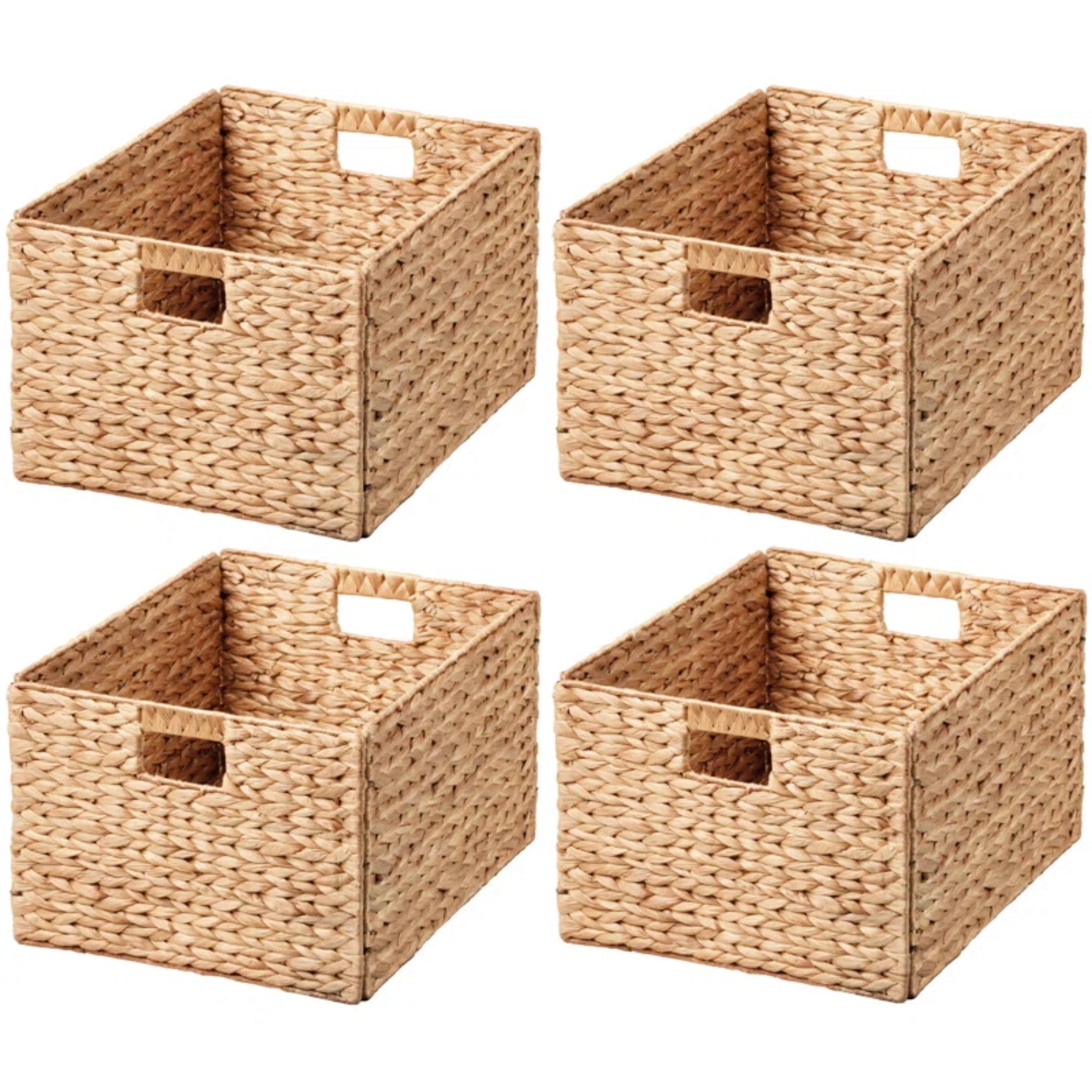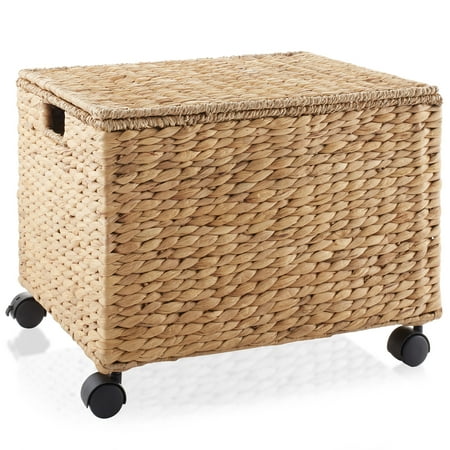The ultimate home decluttering tips guide – expert advice on how to prep, room-by-room advice and much more
Whip your home into shape with our decluttering tips

Ottilie Blackhall
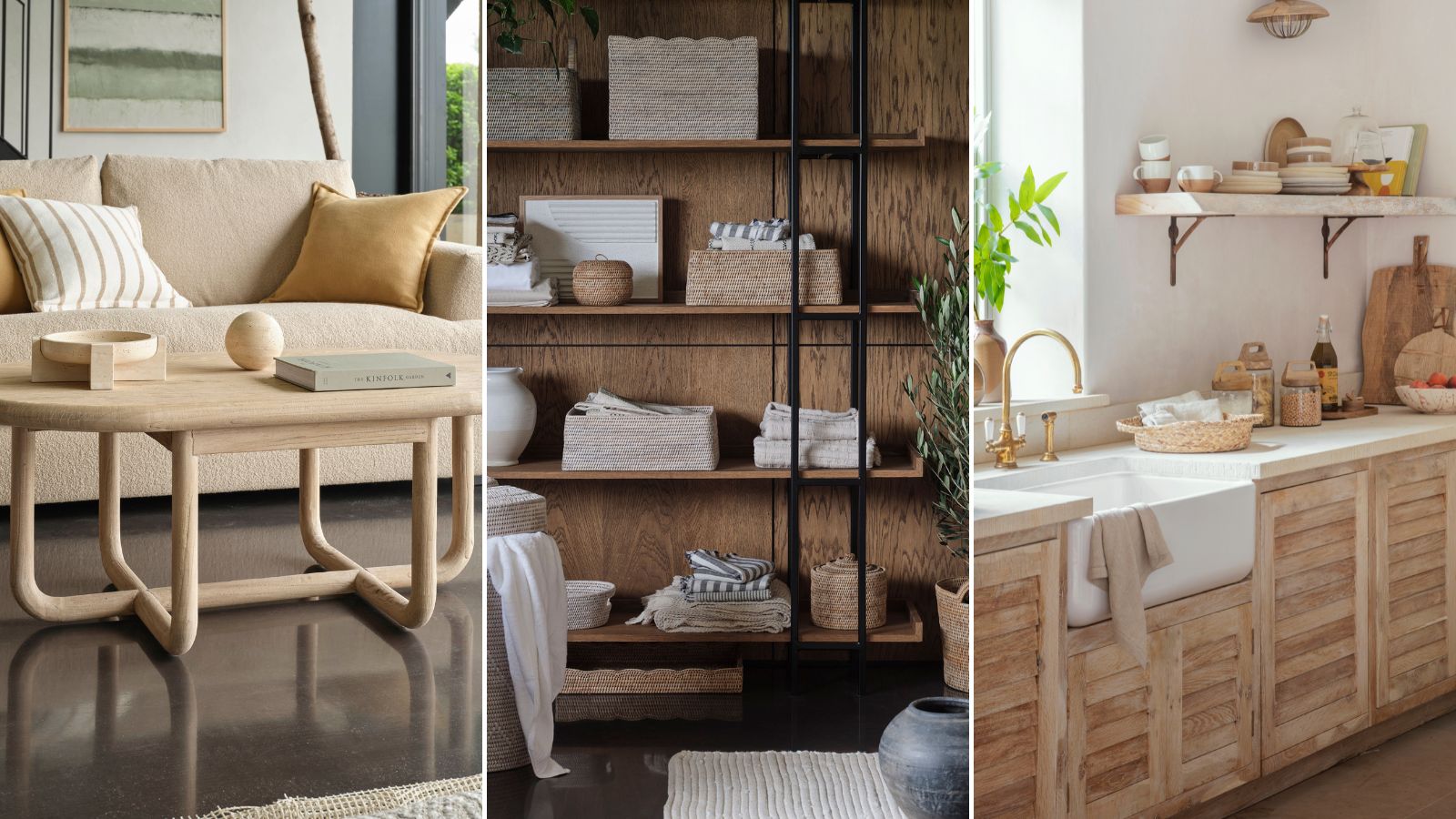
Design expertise in your inbox – from inspiring decorating ideas and beautiful celebrity homes to practical gardening advice and shopping round-ups.
You are now subscribed
Your newsletter sign-up was successful
Want to add more newsletters?

Twice a week
Homes&Gardens
The ultimate interior design resource from the world's leading experts - discover inspiring decorating ideas, color scheming know-how, garden inspiration and shopping expertise.

Once a week
In The Loop from Next In Design
Members of the Next in Design Circle will receive In the Loop, our weekly email filled with trade news, names to know and spotlight moments. Together we’re building a brighter design future.

Twice a week
Cucina
Whether you’re passionate about hosting exquisite dinners, experimenting with culinary trends, or perfecting your kitchen's design with timeless elegance and innovative functionality, this newsletter is here to inspire
Great decluttering tips can make this time-consuming household task feel much more manageable.
So, where do you start? What do you do with the stuff you're getting rid of? Does decluttering advice differ from room to room, season to season, and what if you run out of energy halfway through or are too overwhelmed to begin?
Don't worry! We've spoke to a panel of professional home organizers to discover their best decluttering tips to set the stage for perfect home organization.
Decluttering tips
From the best decluttering mindset for the task to tackling decluttering on a room-by-room basis, our guide will only help decluttering become a more manageable and seamless process in your home.
The starting point is shifting your mindset to embrace the concept that decluttering tips aren't just about clearing your home of things you don't need or want. For many, decluttering well brings a positive impact on mental health.
A survey* recently found 44% of homeowners experience ‘mess-stress’ at least weekly, and 72% of ‘naturally tidy’ people have experienced stress from an untidy home. Furthermore, a cluttered house can make your house look cheap.
But before you delve into these decluttering tips to tackle the most cluttered areas of your home, get yourself set up for success with these expert tricks.
Design expertise in your inbox – from inspiring decorating ideas and beautiful celebrity homes to practical gardening advice and shopping round-ups.
*In a survey conducted by Kantar on behalf of Serenely Sorted.
Preparing to declutter
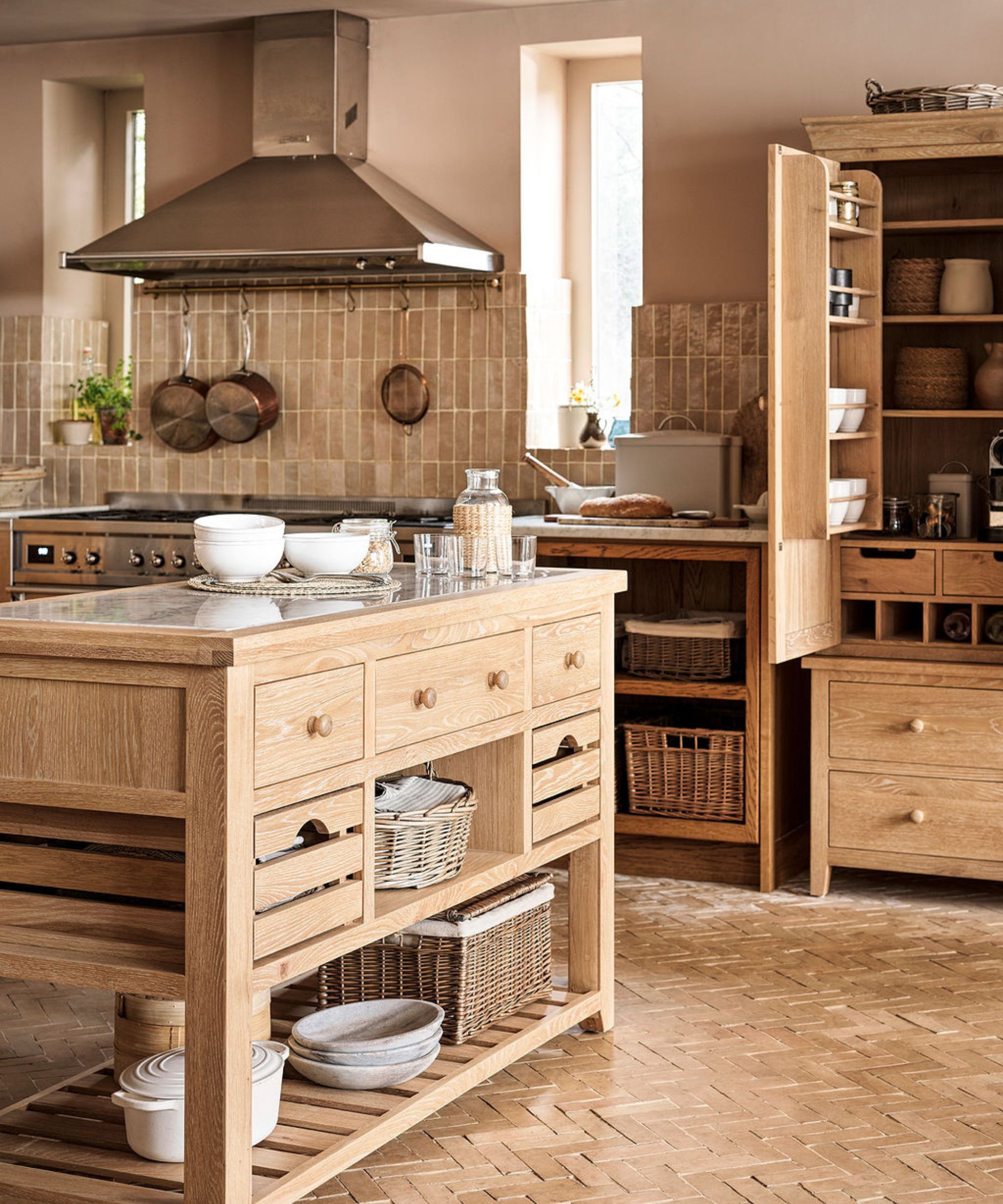
Preparation and mindset are key to successfully organizing your home. When done correctly, decluttering can change your life. Below, we share our expert tips for getting into the right frame of mind for the task ahead:
Allocate a decluttering time
Organizing guru Nicola Lewis of This Girl Can Organise begins, 'Start off by allocating some time each day that works within your daily schedule; it could be five, 10, or 30 minutes. Setting a timer and putting my phone down helps keep distractions at bay and allows me to work through the area swiftly.'
If you don't know where to start, try putting something like the boundary method into action. Tidying your junk drawer first is a productive start to a decluttered home and can help combat procrastination. Diana Rene, home management expert at The Decluttered Mom, recommends 'starting a PM pick up.'
She says, 'Set a 15-minute timer each evening. This mini routine helps build momentum and makes organizing a part of your daily routine,' she says. 'Play some music or a podcast to make it enjoyable and something you look forward to.' Use the time to tackle a specific place, gather items for donation, or use a method such as the Didn't Know decluttering method for an effortless and rewarding result of your time.
Make a list
Kathryn Lord, home organizer from More To Organisingsuggests, 'Start by writing a list of the rooms and prioritize the ones you use the most or that cause you the most difficulties. Then within that room, do the same.
'Decluttering is a marathon and not a sprint,' Kathryn reminds us. 'It’s easier to break it down into chunks and do little and often rather than try to do everything and lose motivation part way through. It can seem overwhelming at first but the good news is, the more you do it, the easier it gets.'
Kathryn warns things will look worse before they get better. Try taking before and after photos so you can see the amazing progress you have made.
Find your motivation
Hyping yourself up and getting motivated to declutter is a must so you don't run out of energy part way through.
Nicola Lewis recommends putting on music or playing a podcast for motivation. Music can help transform our living spaces and provide us with feel-good vibes. She explains, 'This will take you to your happy place and make the task more enjoyable.'
Try saving a new episode of your favorite podcast so you have the motivation to declutter. As tempting as it may be, avoid putting on a television show, as this can become a major source of decluttering distraction and chore procrastination.
Ask for help
Setting yourself up to start decluttering your house can be very difficult if organizing is new to you, or you find it hard to let go of sentimental items. Find comfort in knowing you can confide in close family and friends to help you to complete this.
Your friends won’t have the same attachment to items as you do, and it can help you detach yourself from those sentimental items and look at them a little more objectively, which will ultimately speed up the process to a clutter-free home.
You can make it a fun activity by turning it into an opportunity to spend time together. Order a pizza or head out for dinner or drinks to celebrate a job well done afterward. We tried dopamine decluttering method and it's certainly a winner!
Get bins or bags ready
Once you’ve determined which items no longer serve you, it's time to decide what to do with the items you have decluttered. Be ruthless when decluttering; remove items immediately and place them into a donate, sell, upcycle, or mend bags.
We recommend using sturdy bin bags that won't rip, such as the Hefty Strong Large Trash Bags available at Amazon. The 33-gallon size means there is ample space for anything you wish to declutter.
Nicola Lewis says, 'It’s important to ensure your donation bag leaves the house. You can sell unwanted items online, donate them to those in need, upcycle or mend older pieces to make them current and on-trend, or recycle your items responsibly.'
Kate Ibbotson, founder of decluttering and organizing service A Tidy Mindadds, 'One thing I always do before I start is make sure I have three bags ready: Donate, Recycle and Rubbish. I always tell my clients not to have a "maybe" bag and instead have an "action box" for items that need mending or returning and a "memory box" for anything with sentimental value.'
Avoid tossing out baskets and bins as you declutter your home, and wait until you have finished organizing, adds Lauren Saltman, professional home organizer and owner of Living. Simplified. She says, 'I always recommend to my clients that we hold onto all of these until we are completely done decluttering the entire home.
That way, we can reuse bins and baskets in other areas of the home while we tackle each space if needed. It’s always best to reuse what we have in the home before buying new items. Avoiding duplication and wasting money buying something you already have in the house is one of the reasons decluttering is important.
Pick your approach
Pick a plan on how you want to work through clutter will help to set you up for a successful decluttering session. There are thousands of possible approaches, each one working differently for each person, with some being more effective than others depending on the room and the type of clutter you are dealing with.
To take things into your own hands on a practical level, these decluttering methods are tried-and-true ways to tackle clutter:
- One Bag a Day method: Fill one bag a day with clutter to donate or trash.
- Dopamine Decluttering method: Make decluttering fun and enjoyable to encourage motivation.
- Hushing the House method: Create peaceful spaces in your home by reducing visual noise, for instance clearing surfaces or having a space for empty hangers in your closet.
- 12-12-12 decluttering method: Find 12 items to throw away, 12 to donate and 12 to be returned to their proper home.
- Snowball Decluttering method: Once you have decided to get rid of something, you can use the same reasoning to declutter other like items that fit the same criteria.
- Didn't Know decluttering method: Find items you didn't even know you had and declutter them. Punteha van Terheyden, head of Solved at Homes & Gardens started doing this and has done one drawer a day since, adding it's 'the easiest and most effective decluttering method' she has tried and finds it easy to stick to.
- Boundary Method: Set yourself physical boundaries that you cannot cross when storing items in a specific space, such as a drawer, forcing you to get rid of anything that will not easily fit.
- Scavenger hunt decluttering method: Turn decluttering into a family game. If kids find it hard to let go of any of their items, Punteha says to quietly remove those items later and store them out of sight somewhere for a month. If they don't ask about them, get rid of them as they're unlikely to think of them again.
- Move Out decluttering method: Ask yourself if the things you own are what you would bring with you if you moved house.
- 10-10-10 decluttering method: Spend 10 minutes in 10 spaces getting rid of 10 things in each.
Delve into all our 50+ strong library of tried and tested decluttering methods to find one perfect for you.
Deciding where to start decluttering
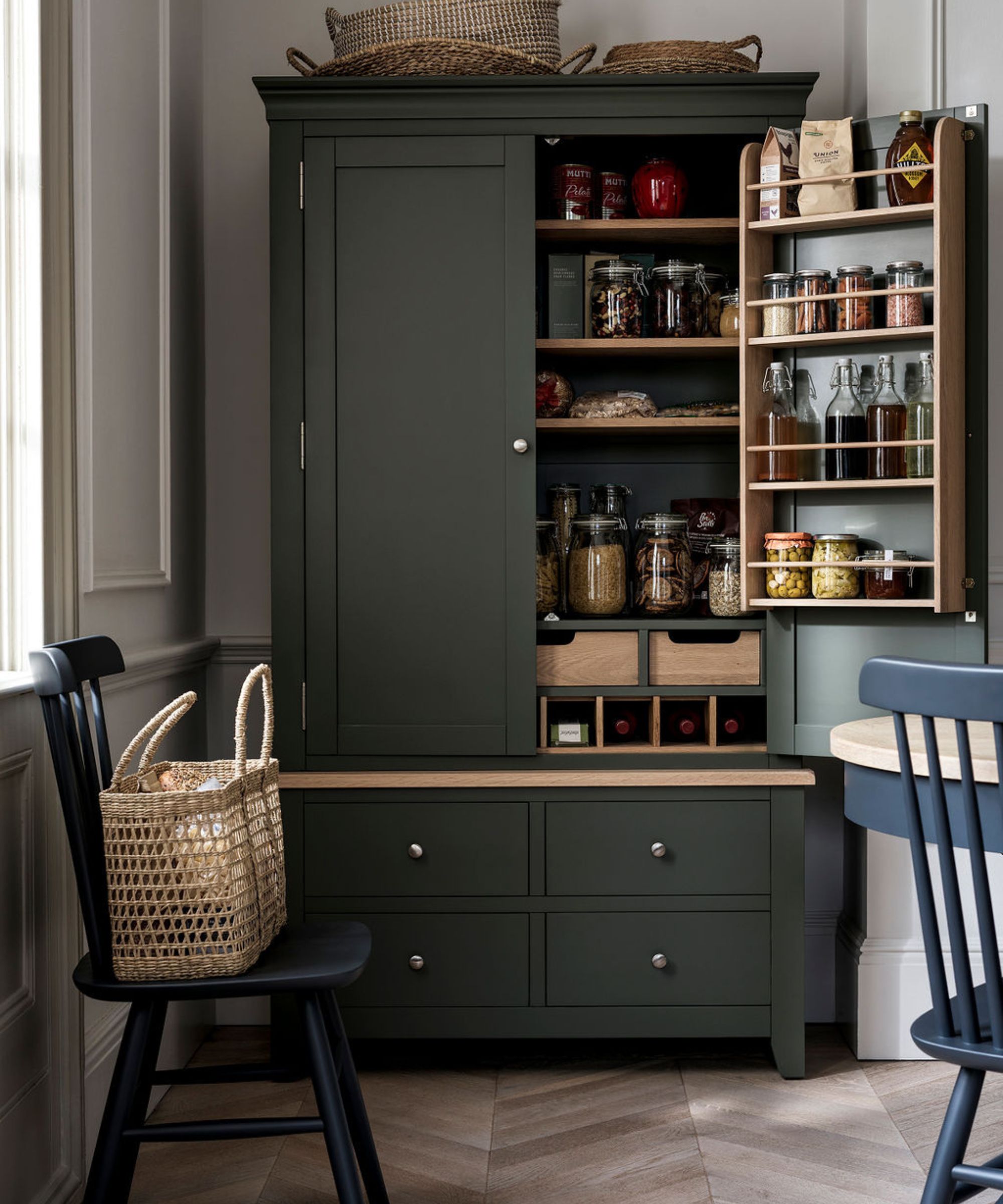
Working out where to start with decluttering is the hardest task of them all.
This will depend on a few factors, including your key problem areas (is it your closet that you can't navigate through in the mornings, or does cooking in your kitchen drive you mad?), how much time you have, and how much energy you have.
Generally speaking, though, there are a few spots the experts recommend if you having a hard time getting started.
Start with key storage areas
'Ibbotson suggests, 'Attics, basements, or hard-to-reach areas at the top of closets are prime locations to stash something quickly to avoid dealing with it. If you’re serious about clearing your clutter, start with these areas first, and then you'll have enough space to store things that you actually need.'
The same applies to tackling hard-to-reach spots like window tracks and the most forgotten spring-cleaning dirt spots, like baseboards and drains.
Work by category
'When decluttering, it's a good idea to divide your belongings by category, not by room. This would be really helpful when you have all your books, for example, in one place and can evaluate which to take and which to leave,' says Kate Windleton, relocations manager at Strong Move.
Barbara Brock, professional organizer, founder and CEO of Barbara Brock Inc., recommends then designating a place for each category. 'To name a few – cleaning supplies, household paper goods, tools, linens, and gardening tools,' she says. 'If everything has a place, then keeping it organized and clean is simpler.
'The best way to manage your space is to group like items together – in other words – categorize. Categorizing shows you what you have (or don’t have) and what is important to you. By grouping things together, you can see what kind of storage you need and it’s easier to see what product to buy to house your items.'
Then, Brock recommends that everyone in the household knows the location of each category.
'Organization is about two things: assigning a place for everything and identifying to everyone where that place is,' she says. 'It’s one thing for a person to organize, it’s another for the other people in a household to know where things live. If a person wants to tidy up, then they know where to put it. By assigning a place where something lives, it speeds up keeping your household in order.'
Work by room
For some people, working by room and seeing progress in one complete area will be easier to manage and more motivating than having to travel around the house to deal with everyone's books, then everyone's clothes, and so on.
When working by room, consider the ski-slope decluttering method to avoid becoming overwhelmed. This approach has you starting in the furthest corner of your room from the door, and decluttering that area, using a basket (such as a folding laundry basket, from Walmart) to collect clutter that lives elsewhere.
Once that corner is tidy, move on to the next corner, bringing the basket with you, putting anything from the basket away that lives in this spot, and decluttering this zone.
Repeat for all four corners of the room, moving back and forth as if you were going down a ski slope until you reach the door and the room is tidy. Anything left in the basket by the end can then be carried to its rightful home elsewhere in the house, or thrown out.
Start small
'Don't try to declutter your whole house in a week – you'll exhaust and overwhelm yourself,' advises Ibbotson. 'Declutter in bite-size chunks of 30 minutes and a couple of hours. Focus on contained spaces such as a drawer, kitchen cupboard, or shelf. Arm yourself with paper and a pen to make notes of "actions" and designate rubbish, recycling, and donation bags.'
The snowball decluttering method uses this technique to create motivational momentum and make the process less overwhelming.
Clinical psychologist and founder of US Therapy Rooms, Dr. Daniel Glazer explains, 'By starting with a more manageable task, you gain confidence, shift your mindset, and overcome initial resistance or uncertainty around letting go of possessions.'
Decluttering the kitchen
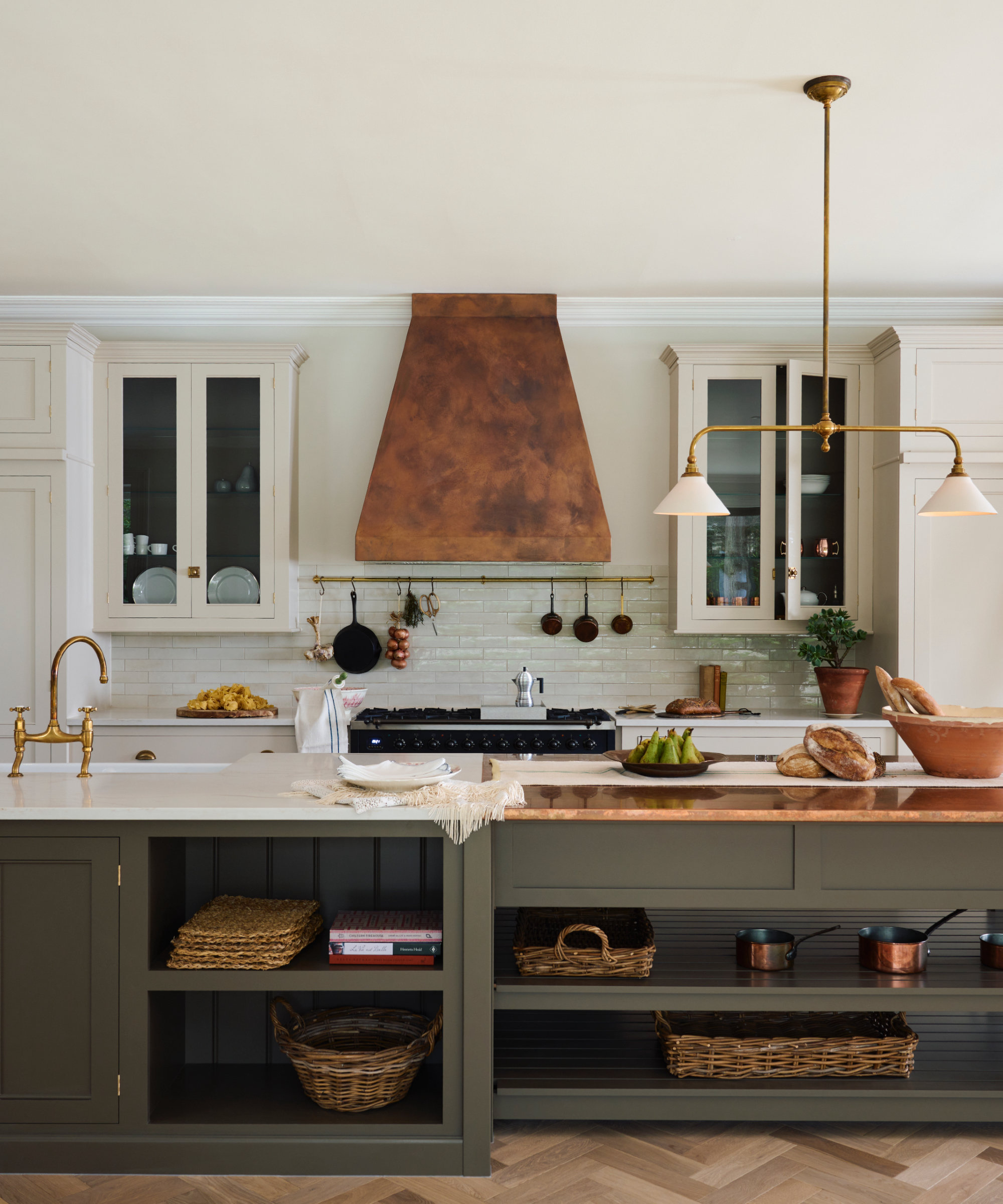
Start with expired products
The easiest place to start when decluttering a kitchen is with expired products and foods you hate. Dig into your cabinets, fridge, and freezer and remove anything that is past its use-by date, or items you can't stand. These can all go straight in the trash, instantly making a bit more space.
The remaining food items can then be stored by their expiry dates to help limit food waste suggests Vicky Silverthorn, professional home organizer and owner of You Need A Vicky.
She says, 'Organize your kitchen like a shop – rearrange your cabinets and organize the refrigerator so that you have items with the closest use-by date to the front, and push items with longer dates to the back – and when you do a shop, put the new items at the back.'
Declutter kitchen appliances
Organize kitchen appliances at the same time as decluttering the rest of your kitchen and get rid of any you no longer use on a regular basis.
Kathryn Lord, home organizer says, 'Any appliances you don’t use, either commit to using it or get rid of. That smoothie maker? When did you last use it? Why not always have a smoothie for breakfast with your children on a Sunday, pull out the recipe books, or invent your own?'
Re-discovering kitchen appliances can be a great way to kick-start a new habit or routine, but if they're just sitting there gathering dust, it's probably time to say goodbye.
Appliances are one of the biggest causes of clutter in a kitchen. Cutting back will instantly make the space more functional.
Declutter the pantry
Organizing a pantry, particularly a large one, or organizing deep pantry shelves, is a big challenge when tackling kitchen decluttering.
Juliette Thomas, Founder & Director of Juliette's Interiors says, 'The solution is good visibility, which will stop you buying more than you need.
'Label everything! I love to use jars to store large commodities such as pasta and flour. These look great on the shelves and are practical too. Watch out for the expiry dates and declutter the out-of-date items.
'Try not to overstock, either,' she adds. 'Too much is wasted – we only need one of each item or a refill on the way!'
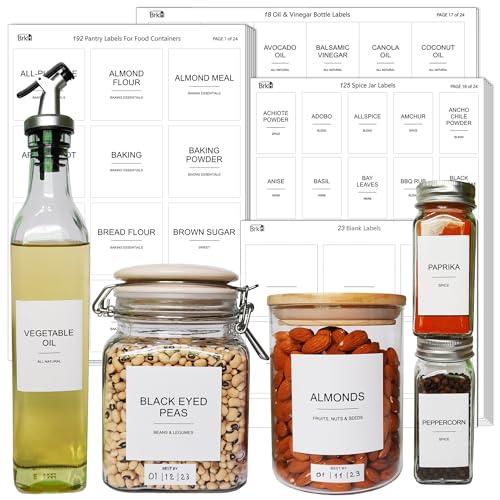
These sleek pre-printed labels are perfect for labelling your pantry items, particularly if you like to use storage jars for dried goods like flour and pasta. They come in three different sizes, so have a suitable size for every container.
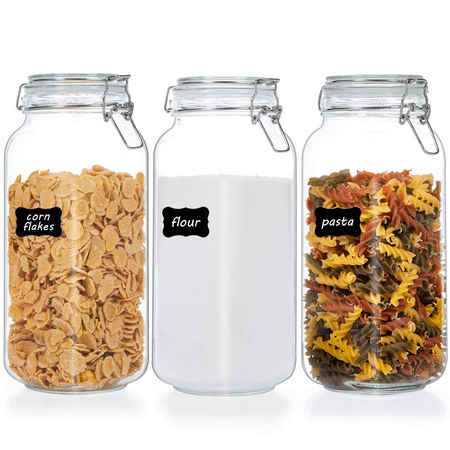
These large airtight storage jars come with chalk labels, so you can re-purpose them whenever you switch out the contents of your jar. The glass design also means you can see your food at a glance, and know when they need refilling. Having matching items like this can help reduce visual clutter, too.
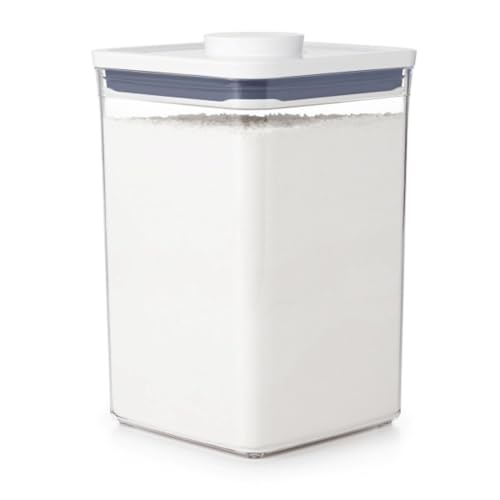
This container features a 'pop' lid, as you push the button to engage the airtight seal. This also doubles as a handle for portability and easy grabbing. It's BPA-free and top rack dishwasher safe, convenient for washing and reusing as you need.
Empty out drawers
The best way to organize kitchen drawers and organize kitchen cabinets is to empty them onto a clear, flat surface, putting aside items you no longer want. Once you have vacuumed and wiped out the drawers, improve the kitchen storage ideas within them to ensure clutter can't get out of hand again.
Juliette continues, 'Always use kitchen organizers like a utensil divider for organizing kitchen drawers. There’s nothing worse than opening a drawer to items that don’t have a home.
'Make sure you organize in a way that will have you finding the things you’re looking for instantly – no one has time to go rummaging in drawers. Have separate sections for utensils that cut, cutlery, graters, and zesters.
'Keep the top drawers for the items used the most, and lower drawers for items not so often used. Keep items in sectional order, ie, what their use is by department. This way you can easily know where to quickly find what you’re looking for.
'Have a large pan drawer built into your kitchen to organize pots and pans, preferably close to where you’ll be cooking. Ideally you want your kitchen to function as best as possible, so try to organize your cupboards in an efficient way – for example, having glasses near the drinks area and utensils near the stove. Use pan protectors (such as the GreenPan Pan Protectors available at Amazon, which are Amazon's Choice) so you can stack your plans neatly without scratching them which will mean you have more space.'
Declutter kitchen countertops
With enclosed storage taken care of, now it's time to tackle the counters.
If you want to organize kitchen countertops, decluttering first is essential. Juliette says, 'Keep out what you use on a daily basis. Otherwise, put away other items. Kitchens are at their best when decluttered, giving more surface space to use and an overall tidy, contemporary look to show off the kitchen rather than the clutter. Put away spices, coffee/tea, oils, and so on. Completely declutter.
'Keep surfaces tidy. Make sure there’s a home for everything so nothing gets left on the side.'
Declutter the dining room
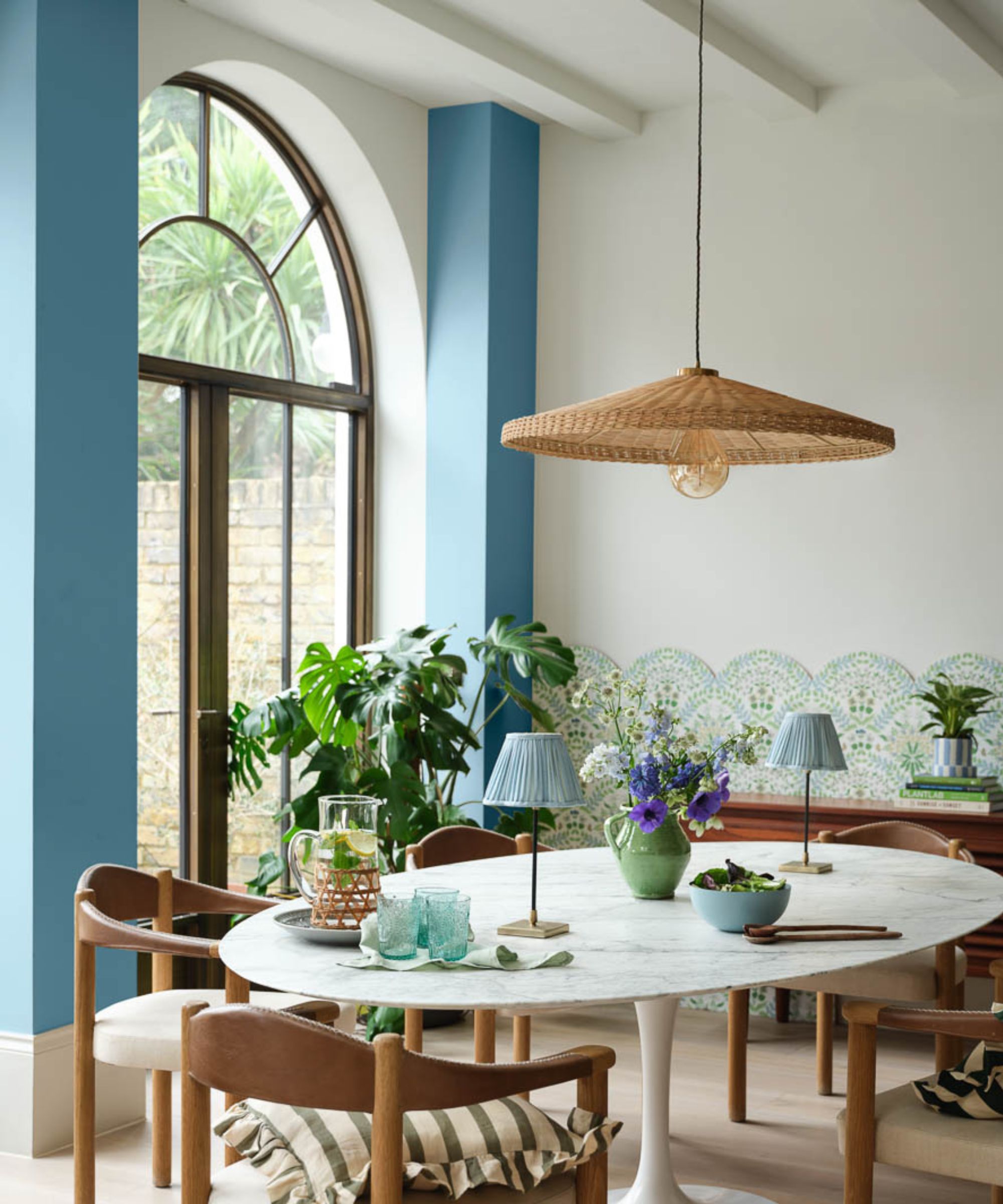
Though we might like to think our dining room ideas are designed exclusively for enjoying meals, it's often too easy for household clutter to pile up on the dining table itself, so it's important to declutter the dining room regularly.
'Janelle Cohen, professional organizer and creator of Straighten it Up recommends, 'Begin by clearing surfaces such as tables and counters. This creates a more visually appealing and spacious atmosphere.'
Once your dining table is clear, consider creating separate drop zones in your kitchen or mud room to alleviate the desire to clutter up this space again.
Adding a sideboard to your dining room is a great way to add purposeful storage, and wall-hung cabinets can conceal clutter without taking up valuable floor space.
Decluttering bedrooms
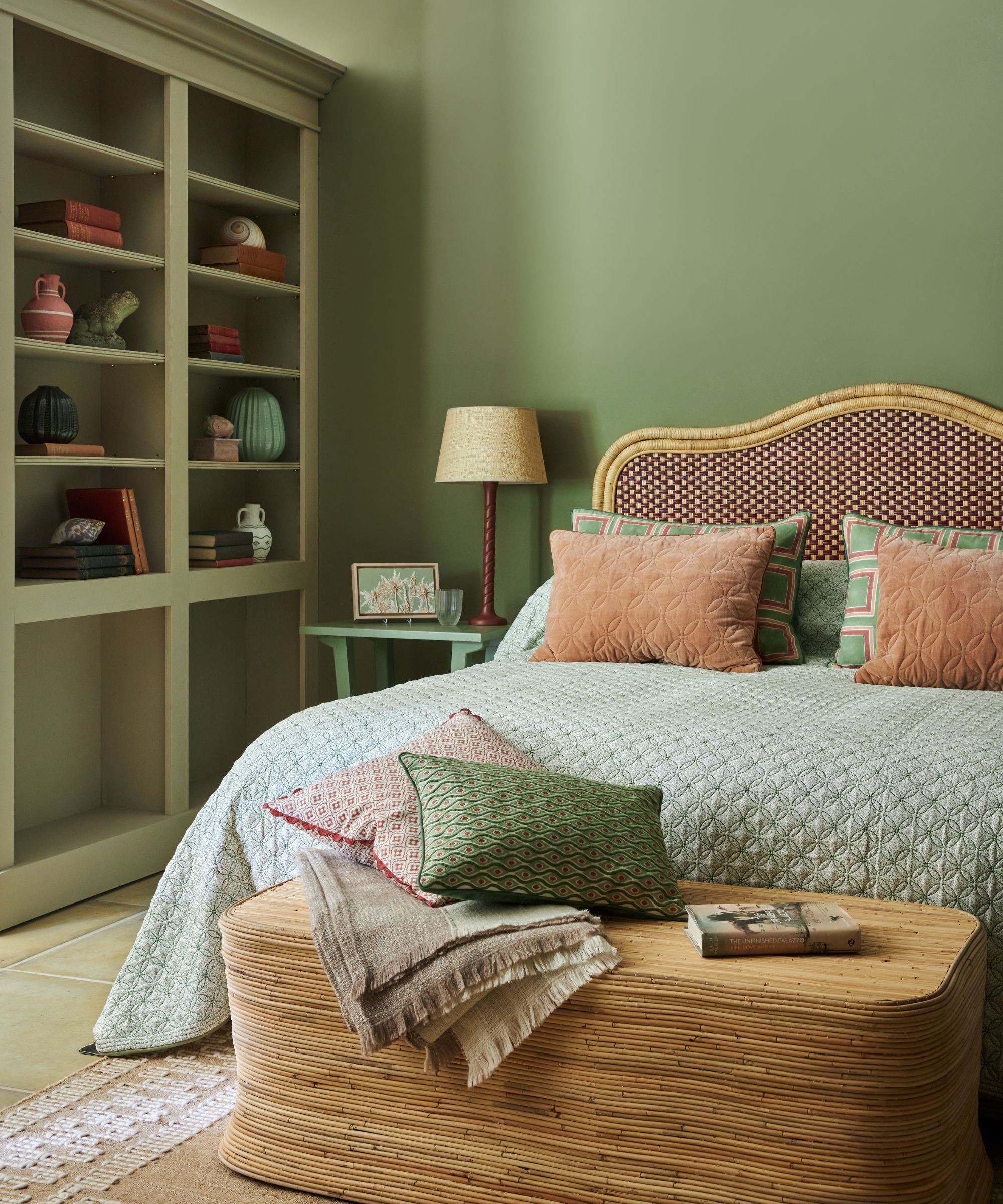
Start with closets
Decluttering first is crucial when you’re organizing a bedroom, and whether you’re looking for closet organization ideas or clothes storage ideas.
Georgia Metcalfe, founder of French Bedroom says, 'A bedroom should be a clean, calm sanctuary-like retreat. If you have a closet that is brimming over, drawers that won’t close for clothes, and a bedside creaking under the weight of bedside books, it’s not going to make you feel relaxed or in control.'
Start simple, says Metcalfe, 'Empty your drawers. Easy, just get everything out, without editing. Next, categorize. Gather similar items together, lingerie, tops, jumpers, etc. This is the point where you realize what you have and how much of it you want – edit if you need to.'
Decide what goes where when organizing clothes, comments Declutter on Demand's Lizzie Grant, 'Whether your clothes should be folded or hung will be dictated in part by what kind of storage you have in your bedroom.
However, where possible, delicate materials that are prone to wrinkling should be hung (either in your closet or on a rail such as the HUIMART Double Rod Garment Rack with Wheels available at Walmart). Bulky items like sweaters and jeans might work better folded in an armoire, and you might have enough drawers to allocate one for each of your underwear, socks, and tights, for example.'
Empty out under the bed
Underbed storage ideas are a real lifeline for small houses and bedrooms with limited storage, but they quickly accumulate all sorts of useless clutter that makes them impossible to navigate.
The best way to tackle these spaces is to take everything out and lay it on the bed so you can see it. Get rid of items that you completely forgot you had (you obviously don't use them), then work through your seasonal storage pieces, decluttering anything you haven't used in the last year.

Under bed storage is a great way to expand on your existing closet space, be it for storing your off-season items, or offering a place for you bulkier pieces that need folding, but take up too much space in dresser drawers. These bags on wheels makes them easy to pull out quickly and access as needed.
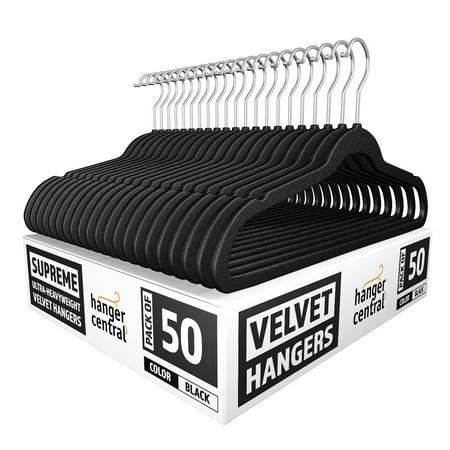
You would be hard pushed to find a pro organizer that doesn't love velvet slimline hangars to organize a closet. They keep clothes in place without taking up too much space.
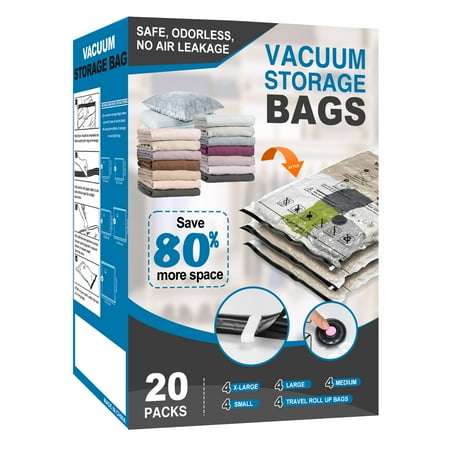
Keep your holiday linens in vacuum bags to limit their footprint in your home when you are not hosting. Wash them before storage to keep the items fresh in between uses
Don't forget nightstands
Nightstands are magnets for clutter. From books to medications to snacks and water glasses, moisturizers, and more.
Decluttering nightstands can make your evening routine a little calmer, helping you to shut down and relax easier each evening (as you won't have to fight through an overflowing drawer to find your eye glasses or your linen spray).
Deal with kids room by age
Stuck on how to declutter kids rooms?
Kathryn Lord from More To Organising suggests, 'Always start with the eldest sibling's room first; that way, anything (clothes, toys, books) too small or young for them can be labeled in a box ready for the next child to be ready them.'
Organizing toys is always a challenge. 'Rotating toys means you have many fewer toys "in action" and you swap them out,' continues Kathryn Lord. 'This means there is less mess to tidy up but also, too many toys cause overwhelm. It’s hard to know what to play with when there is so much choice and when you swap the toys out, they are more excited to play with the new toys.
'For example, when having small world toys, they don’t need the zoo and the farm out at the same time (unless you want to do a sorting activity).
'I also do this with books. One client texted to say her child has picked up books that he hasn’t for a very long time. This is a great opportunity to think about organizing your children's books.
Checking electronic toys are actually usable makes such a difference to their play. If they do not work, they are taking up valuable space in your home and causing frustration. Storing batteries up high is essential as they are very dangerous when swallowed.'
Good toy storage ideas are vital to keeping decluttered items neat and organized too. We recommend investing in a good quality toy box, such as the Harmony 32" Toy Storage Bench available at Wayfair, which is rated 5 stars by almost 500 shoppers. It has safety hinges that ensure a soft close, so little fingers won't get trapped.
Punteha van Terheyden, head of solved at Homes & Gardens is a mom-of-one young child, and a perpetual declutterer. She says, 'Every couple of months, my husband and I tackle our daughter's bedroom, and all the spaces around the home she has toys, crafts and other supplies. We do it without her there otherwise she will never get rid of anything and gets upset, understandably.
'However, in the lead-up to her birthday and before present-giving occasions such as Christmas, the three of us tackle one of her spaces together and she helps declutter the things she no longer wants to make way for her new things.
'We think it's a good exercise in gratitude and mindfulness and will hopefully stand her in good stead. When she is unsure of something, we agree to keep it for another month in a space that's out of sight. If at the end of that month, she hasn't wanted it or asked for it, we will get rid of it.'
Decluttering the bathroom
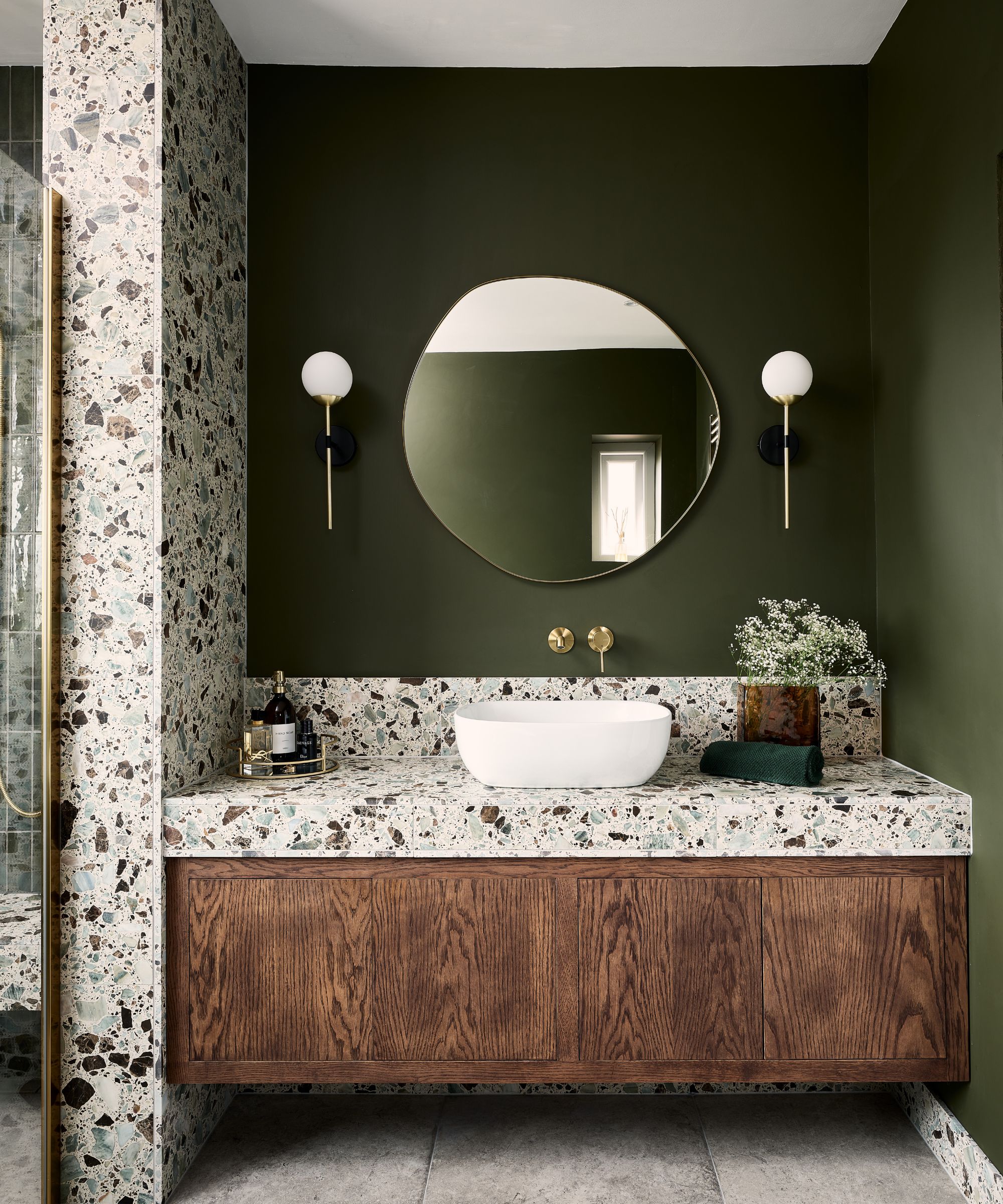
Sort through products
Bathrooms get cluttered quickly – half-used shampoo and conditioner, soap dispensers, toothpaste, and shower gel, not to mention out-of-date medications, can quickly build up, while old towels tend to languish at the back of a linen cupboard for years.
When organizing a bathroom, Kathryn Lord says, 'The medicine cupboard always seems overlooked. Checking the dates on these is important. The last thing you want is to have a poorly child and not be able to find the right medicine, or worse, out-of-date medicine that might make your child more ill. It’s best to keep this topped up with all the essentials and go through it every three months. But don’t buy too many of the same thing. After Sun and insect bite cream often expires before it’s fully used.'
For any half-used products like shampoo and body wash see if you can empty these into one bottle, cutting two or three bottles of 'almost-used-up' shampoo into one. It will also make getting the products out of the bottles easier.
Keep bathroom countertops clear, and learn how to organize a bathroom with too much stuff to take back control in this space.
Be ruthless with linens
Decluttering and organizing a linen closet is the trickiest part of decluttering a bathroom.
Working out how many towels you need is the best first step. generally speaking, two or three bath towels per household member is enough, with an extra set for guests or emergencies. Any towels over this limit, or are threadworn and scratchy should be donated to animal shelters, recycled, or thrown out.
Apply a similar rule to bedsheets. Given how often you should change your bedsheets, having two to three sets per bed in the house is practical. Any more than this will simply clog up your storage.
Decluttering the entryway
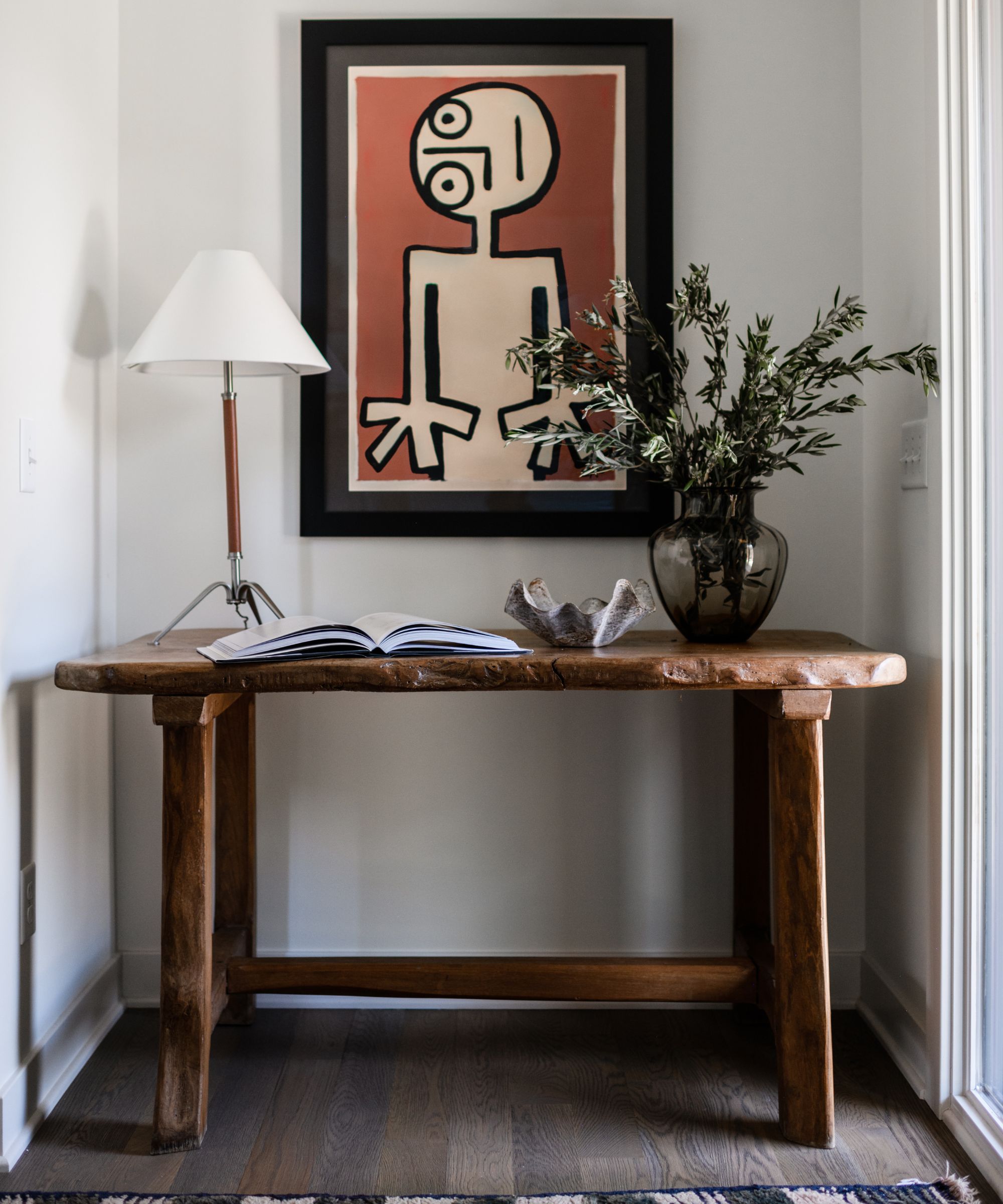
Get items off the floor
The biggest offenders in cluttered entryways are piles of things on the floor. Be it bags, coats, or shoes, they will trip people up and make cleaning an entryway harder.
The first entryway decluttering rule is to start by picking everything up, and getting rid of trash and broken items. Shoes should be put in storage. This might look like a storage bench, a shoe rack, or a shoe cabinet, to keep them out of the main walkway.
Coats can then be hung up, or put in seasonal storage depending on the type and the current climate.

Holding nine pairs of shoes, these shoe storage racks can be mounted on top of one another to make better use of vertical storage in your entryway.
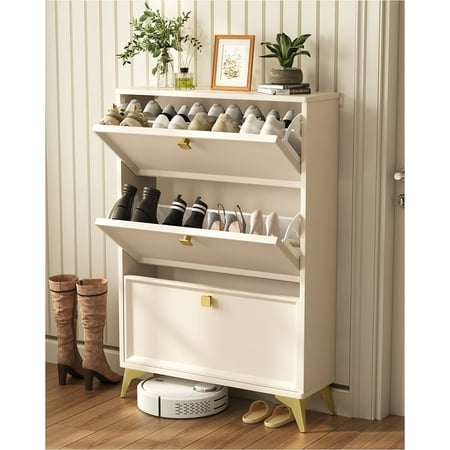
Keep shoes and their odors out of the way with an enclosed show storage cabinet. These slimline cabinets create storage without getting in the way.
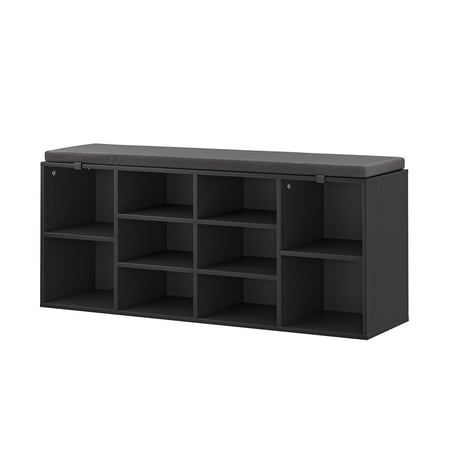
A padded shoe bench doubles as somewhere to take soes on and off, and offer an extra surface to balance bags when lugging in your shopping.
Tackle coat closets
Organizing coats isn't easy given their bulk and the fact we need so many types depending on the weather and time of year.
When decluttering, assess the coat's quality. Any coats that are damaged, or no longer stand up to the weather they were made for (they might not keep you warm or dry anymore, for instance) are contenders for decluttering.
Out of season coats should be folded into vacuum bags and stored until they are needed, helping to reduce their bulkiness in storage.
Remove items not related to leaving the house
A cluttered entryway will make it infinitely harder to leave the house, especially on busy days. Any items that are not related to getting out should be removed from the space.
This means leaving gloves, hats, and umbrellas, but decluttering lesser-used handbags, boxes that you have been meaning to move but keep forgetting, mail and deliveries, and so on.
Decluttering the living room
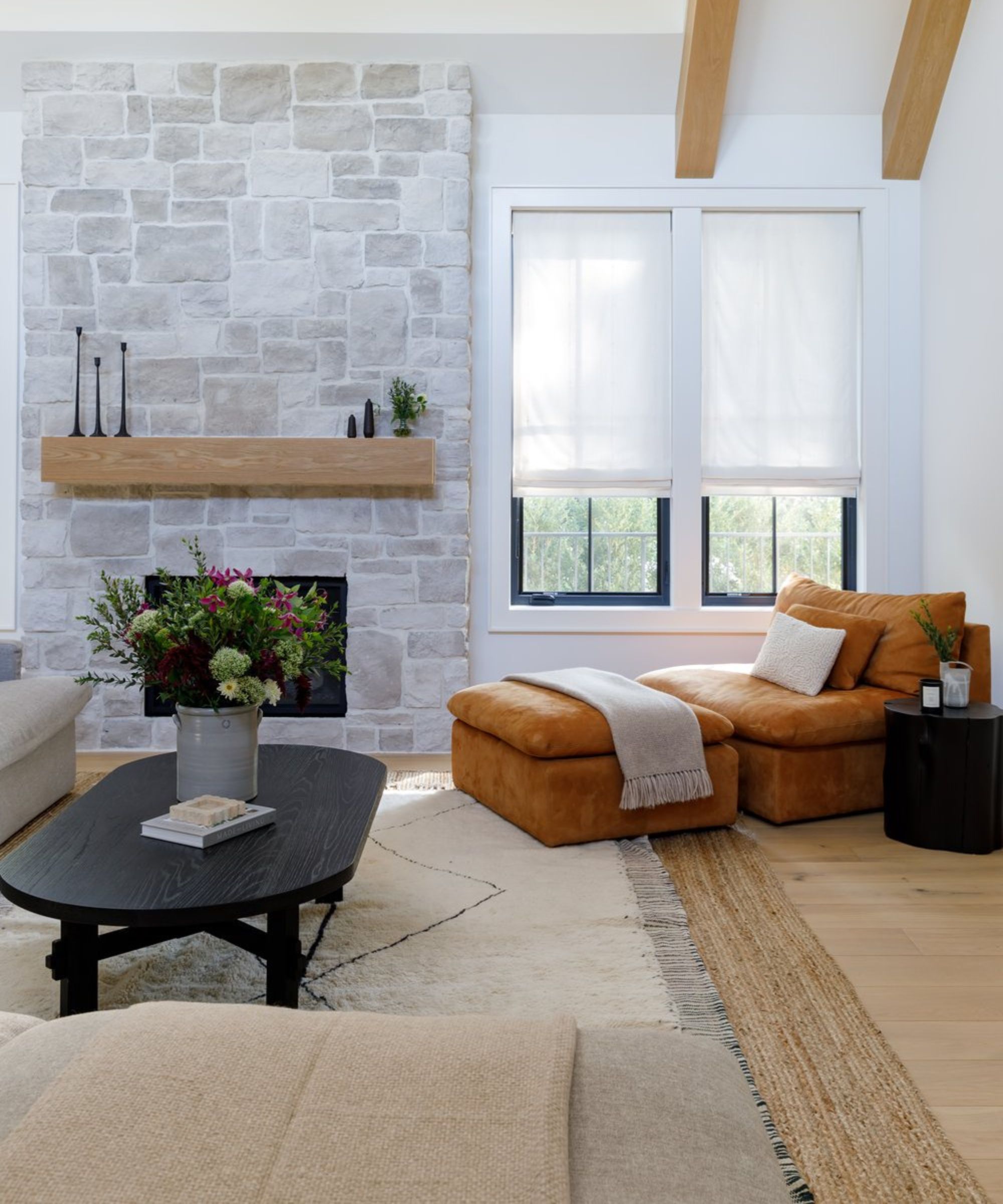
Mediate the media unit
Home tech can quickly contribute to clutter ass few of us are willing to part with expensive items. This usually results in our media units overflowing with cables, gadgets and manuals that only collect dust.
Taking everything off your media shelves might be tricky, so remove what you can and assess which tech you still use. Empty out the cable drawer and label each one with what it does. Any left over cables should be put in a basket to one side. If you dont use any of them within six months, you can likely get rid of them safely .
Assess soft furnishings
One of the top golden rules for a clutter-free living room is to cut back on soft furnishings. Blankets and pillows can quickly become clutter when you have so many that they are falling on the floors, or overflowing from storage baskets.
Limit blankets to one (two at most) per sofa, and only keep throw pillows that are plump and fluffy, and go with your current decorating scheme. You can always recover them if you redecorate in the future.
Use a storage ottoman, available from Wayfair, to keep them tucked away but accessible when not in use.
Keep surfaces clear
Living room shelving ideas, coffee tables, and side tables all need to have some available space for items to be put down easily.
They don't need to be completely clear, of course. Living room decor and coffee table books make the space feel more alive, but it certainly helps to have some space free for drinks.
Some items to get rid of in your living room could be items you used once and are yet to put away, trash, or dishes from snacks that you are yet to move.
Decluttering the home office
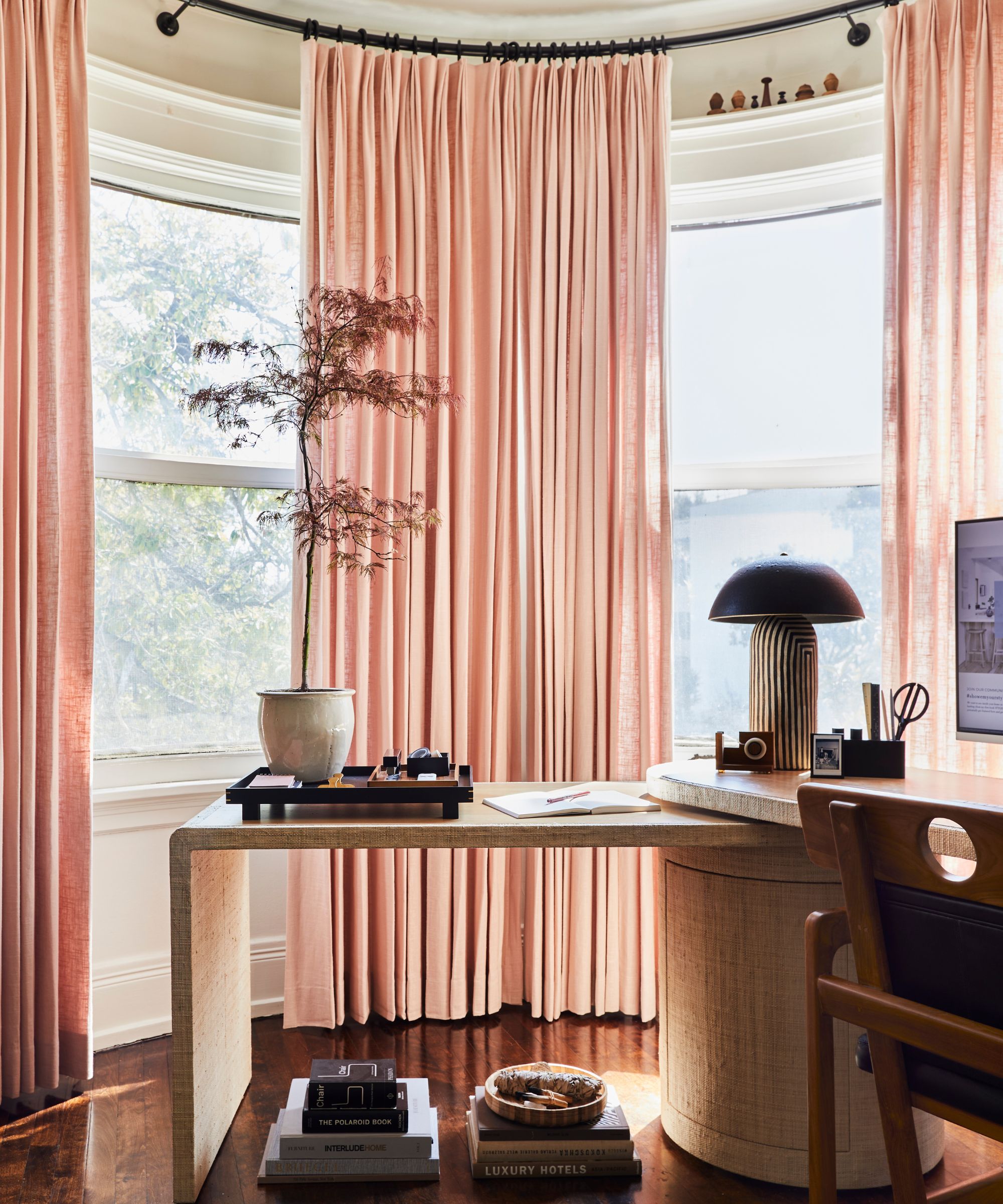
Declutter bookshelves
Your once beautiful arranged bookshelf ideas can quickly become overwhelmed and over-stuffed, so it is worth going through them every now and then to discard books you are not going to read again.
Organizing a bookshelf by author or subject can help ensure books stay decluttered and easy to locate, but if you want a decluttered 'look' for them, think color coordinating.
'Color coordinating books make your place instantly look better,' advises Lord, who also goes on to say: 'It helps your child become more independent, too. They know the color of their favorite book, and they know where to put it back. As with the toys, rotate them. They don’t all need to be out at once. Even this is just rotating from a high to a low shelf, so it’s more accessible for little hands.'
Declutter your desk spaces
Organizing a desk for an adult after decluttering ensures they can work efficiently – and feel happy about being at work for long hours. Children's work spaces are no different.
'When your children are doing their homework, to support them to try their best, their desk space needs to be clear from clutter,' advises Kathryn Lord.
'Going through pens can be done together, binning any dried-up felt tips. Some pencils need binning if their nib can not be sharpened. Creating a space where they know and can easily find paper and stationery means they can be more successful at their work.'
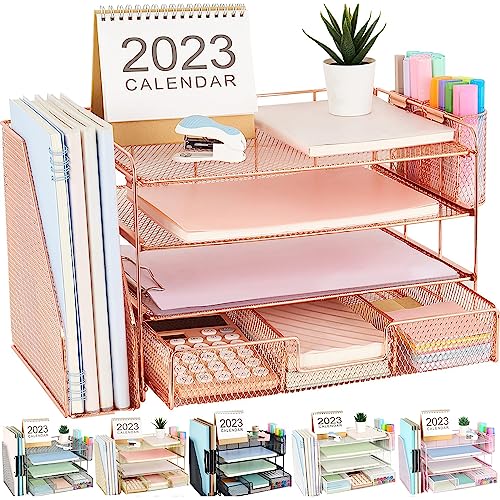
This desk organizer is available in eight colorways, so there is something for everyone and every room. Once you have decluttered all the old pens and papers, sorting each item into an organizer will keep the desk neat and tidy, and encourage independence.
Be careful decluttering documents
Even if you feel fairly sure you may not need them in the future, it’s typically wise to be wary of throwing out certain important documents when organizing a home office.
For example, certified professional organizer Amy Trager points out, 'Birth certificates, proof of property purchases, social security cards, etc. are items that should always be kept, and kept someplace safe.' Bailey Moran, a real estate professional and COO of Bramlett Residential agrees, saying, 'Documents like tax returns, receipts, warranties and owner's manuals and also emergency contacts are definitely worth organizing, but not discarding. You never know when information like that might come in handy.'
That's not to say that you can never get rid of paper clutter that enters your home – you simply need to think carefully before doing so.
The same goes for any cables or keys that you do not know the purpose of. Amy adds, 'Don’t declutter keys instantly. At least, not until you've tried them on all the locks you have. They may very well be for a car you no longer have or a home you no longer live in, but until you've confirmed they don't lock anything you currently own, don't toss them.'
Safely tackle sentimental items
All of the experts we spoke to agree that you should likely ignore any immediate impulse to declutter sentimental items, even if you're unsure about how to practically use or display them.
Amy Trager says, 'Be careful decluttering anything that means something special. It could be the last card you have from Grandma before she passed, or it could be the jersey you wore for the championship game in high school. If it's something that can't be replaced and makes you warm and fuzzy to see/use it, you should probably keep it.'
Photographs are a particularly important group, especially if you have lots of physical ones stored up in your home.
Professional organizer Barbara Brock says, 'When looking into one’s ancestral records, keeping photographs (as well as papers) are a big part of tracing one’s roots and preserving your heritage.'
However, it’s important to consider whether yours are currently being fully appreciated and/or properly preserved, Barbara says, 'The overall suggestion to keeping photographs is to box items up in a careful manner and store them in a dry place, whether that be a closet, attic or basement.
Photo albums, such as this 504 slot photo book on Walmart, are also a great way to keep your images safe, of course. 'Keep them in photo albums and put those albums in the basement or attic for safekeeping.
Looking for even more helpful tips on decluttering? Learn what professional organizers advise you to do with the items you are decluttering and what people with tidy homes never do.

Chiana is Homes & Gardens’ kitchen appliances editor. With a lifelong passion for cooking and baking, she grew up experimenting in the kitchen every weekend with her baking-extraordinaire Mom, and has developed a great understanding of how tools and appliances can make or break your ideal relaxing kitchen routine.
- Ottilie BlackhallSleep Editor
